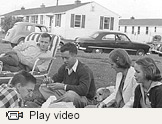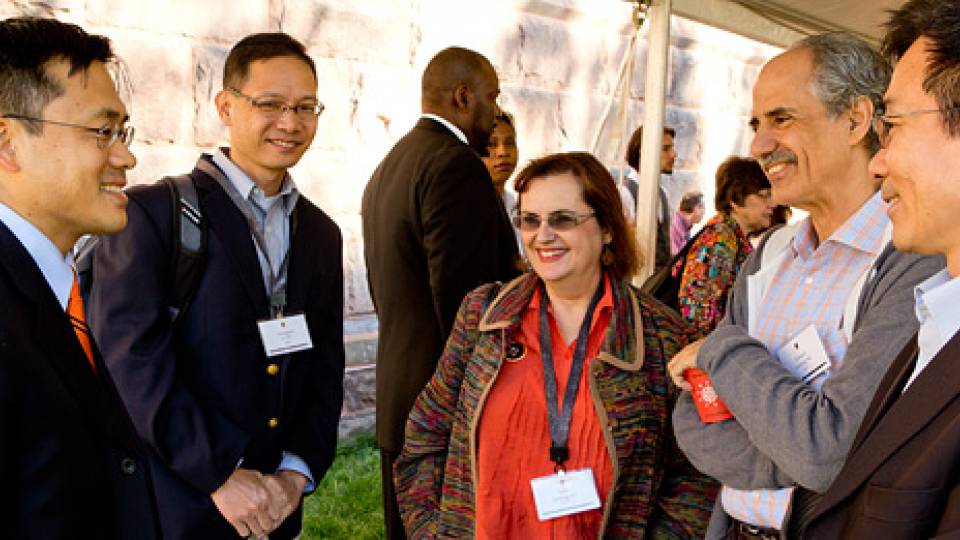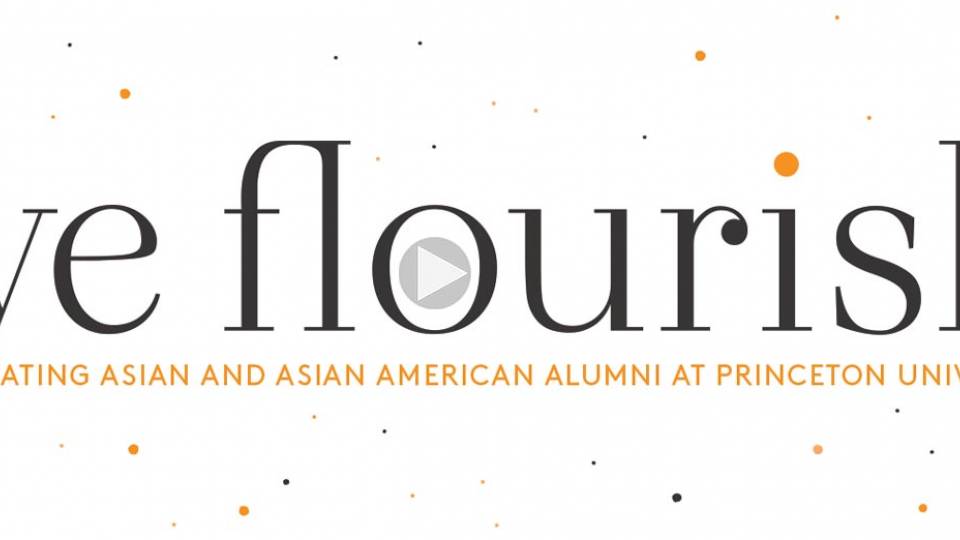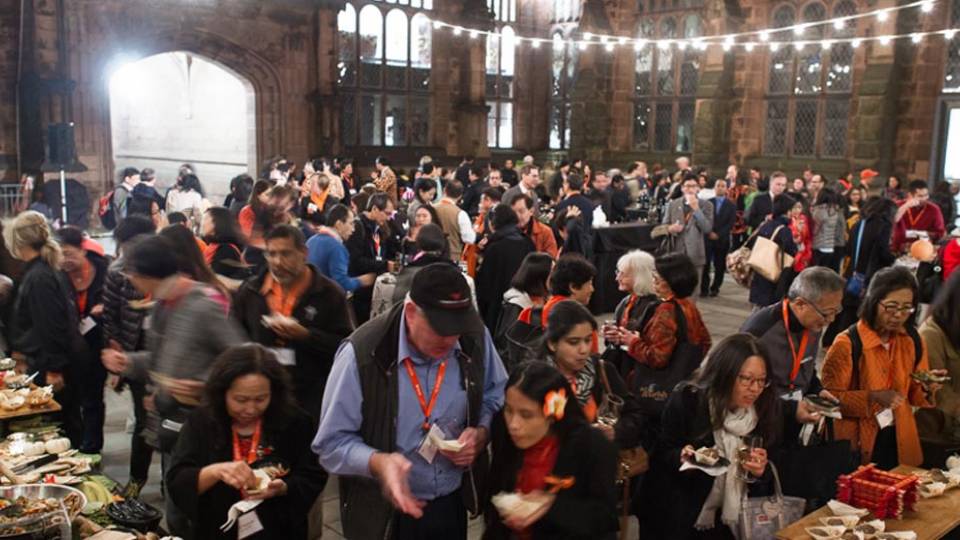Princeton University is holding a campus conference for all graduate alumni this week, with more than 1,000 alumni and guests expected to attend and connect with fellow alumni and reconnect with the University.

Play the “Many Minds, Many Stripes” video.
The “Many Minds, Many Stripes” conference(Link is external), which runs Thursday to Saturday, Oct. 17 to 19 and is open only to registered alumni and guests, will feature presentations by alumni, faculty, staff and students; alumni discussion groups; networking opportunities; campus tours; and many social events. The full schedule (.pdf)(Link downloads document) contains more than 50 events with more than 100 speakers.
Highlights of the conference include:
- A conversation with President Christopher L. Eisgruber(Link is external).
- Keynote talks by graduate alumni including Norm Augustine, retired chairman and CEO of Lockheed Martin Corporation; retired U.S. Army Gen. David Petraeus, former director of the Central Intelligence Agency; Kavita Ramdas, Ford Foundation representative and former CEO of the Global Fund for Women; and George Will, Pulitzer Prize-winning journalist.
- Panel discussions featuring Princeton faculty, graduate students and graduate alumni on higher education issues such as the graduate student experience, teaching graduate students, higher education leadership, access to higher education, diversity in higher education, support for research, and the humanities’ role in higher education, as well as topics such as nonprofit and public service careers, entrepreneurial endeavors, architecture, cybersecurity, renewable energy, climate risks, economic downturn and recovery, and Chinese arts and culture.
- Lectures by the following Princeton faculty: Ellen Chances(Link is external), professor of Slavic languages and literatures(Link is external); Brian Kernighan(Link is external), professor of computer science(Link is external); Paul Krugman(Link is external), professor of economics(Link is external) and international affairs(Link is external); Douglas Massey(Link is external), the Henry G. Bryrant Professor of Sociology(Link is external) and Public Affairs; and Eric Wieschaus(Link is external), the Squibb Professor in Molecular Biology(Link is external).
- Receptions and networking events segmented by department, affiliated groups, career fields, and other interests.
- Tours of the Graduate College’s dormitories and tower; the Princeton University Art Museum(Link is external); Firestone Library(Link is external); Lewis Library(Link is external); and campus sculpture(Link is external).
On Friday morning, conference organizers premiered a video that showcased the Graduate School(Link is external)’s history and the evolution of graduate education, student life and alumni relations, as well as the impact that Princeton has had on alumni’s lives.
“The role of graduate students in the Princeton community has always been indispensible,” Eisgruber said in the video.
One of Princeton’s first graduate student was James Madison, who continued his studies at Princeton in 1771-72 after earning his undergraduate degree. The Graduate School was established in 1900, and the Graduate College, which houses many graduate students and the dean, was completed in 1913. As the Graduate School’s first dean, Andrew Fleming West envisioned Princeton graduate education creating a community of scholars, resulting in fellowship with students across fields of study and producing a person capable of working well with many people and “many minds.”
Liz Pender, a graduate student in molecular biology, said she chose Princeton for the way the University carries out that vision today.
“It was a place where I could learn to be a scientist of the new generation, where I could learn computation and traditional genetics and really apply that to be successful,” she said.
In addition to their academic training, graduate students leave with a desire to lead and to serve, said Justin Mikolay, who received a Master in Public Affairs in 2003.
“The famous speech that Adlai Stevenson gave here called ‘The Educated Citizen’ in 1954, the thesis of that speech was, more or less, you have been given much and therefore much will be demanded of you. When you leave FitzRandolph Gate, you have an obligation to serve the country, to serve the world,” he said. “That feeling of being compelled to leave here and serve others I think is common among Princetonians.”





